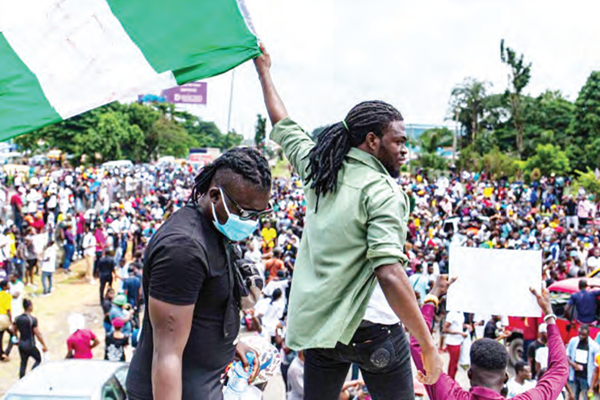
Security forces and peaceful protests
In Nigeria, the relationship between security forces and peaceful protests is a critical aspect of maintaining democratic integrity and public order. As the country faces various socio-economic challenges, the manner in which security forces engage with demonstrators can significantly impact both the effectiveness of protests and the broader public perception of law enforcement.
Peaceful protests are a fundamental expression of democratic engagement, allowing citizens to voice their concerns, advocate for change, and hold leaders accountable.
These demonstrations play a vital role in highlighting issues that may otherwise be overlooked and in pushing for necessary reforms. However, the success and safety of such protests depend heavily on how security forces manage and respond to these gatherings.
Security forces are tasked with the dual responsibility of maintaining public order and respecting the rights of protesters. Their approach should be guided by principles of professionalism, restraint, and respect for human rights.
Effective crowd management strategies, clear communication, and a commitment to minimizing the potential for violence are essential components of this responsibility. When security forces operate with these principles in mind, they not only ensure the safety of both protesters and the general public but also uphold the democratic values of free expression and assembly.
Conversely, heavy-handed or inappropriate responses from security forces can escalate tensions, lead to unnecessary confrontations, and undermine public trust in law enforcement.
Instances of excessive force or indiscriminate actions against peaceful protesters can provoke further unrest and cast doubt on the legitimacy of both the protests and the government.
It is crucial that security forces are well-trained in managing demonstrations, with a focus on de-escalation techniques and the protection of fundamental rights.
The role of security forces in relation to peaceful protests also reflects broader governance practices. A government that supports and respects the right to peaceful assembly demonstrates its commitment to democratic principles and the rule of law.
In turn, this fosters an environment where public grievances can be addressed constructively, and trust in institutions can be strengthened.
For Nigeria to progress, it is imperative that security forces play their role effectively and fairly during protests. This involves a balanced approach where public safety is ensured without infringing on democratic rights.
By upholding these standards, security forces can contribute to a more stable, just, and democratic society, where the rights of all citizens are respected and protected.
The interaction between security forces and peaceful protests is a critical determinant of Nigeria’s democratic health.
By managing protests with professionalism and respect for human rights, security forces can support the democratic process, foster public trust, and contribute to positive societal change.




